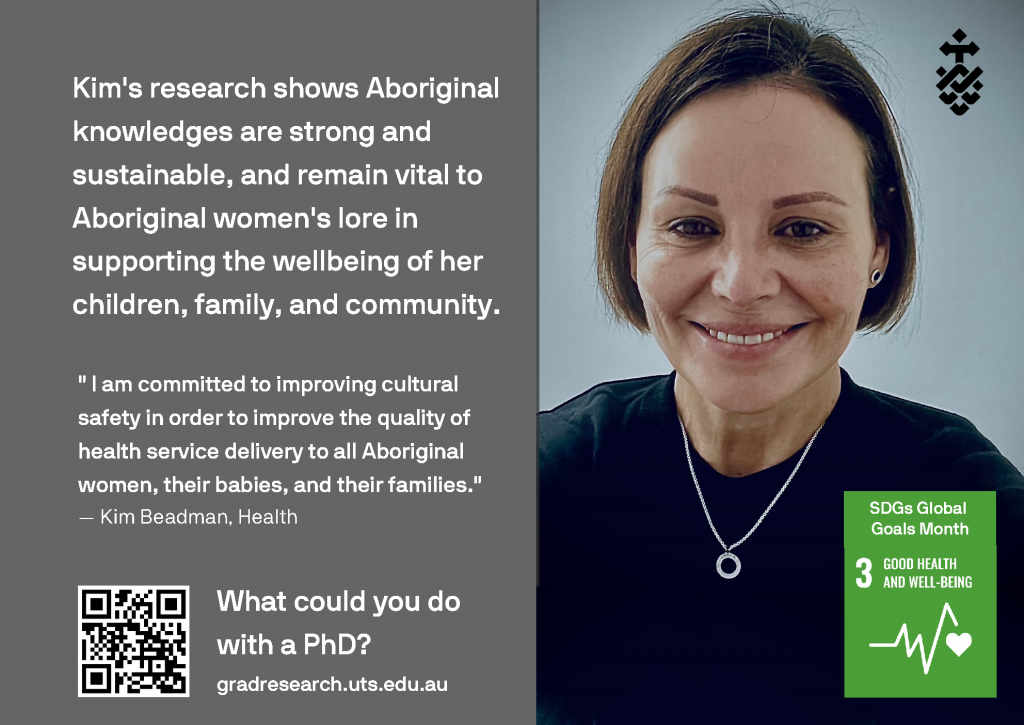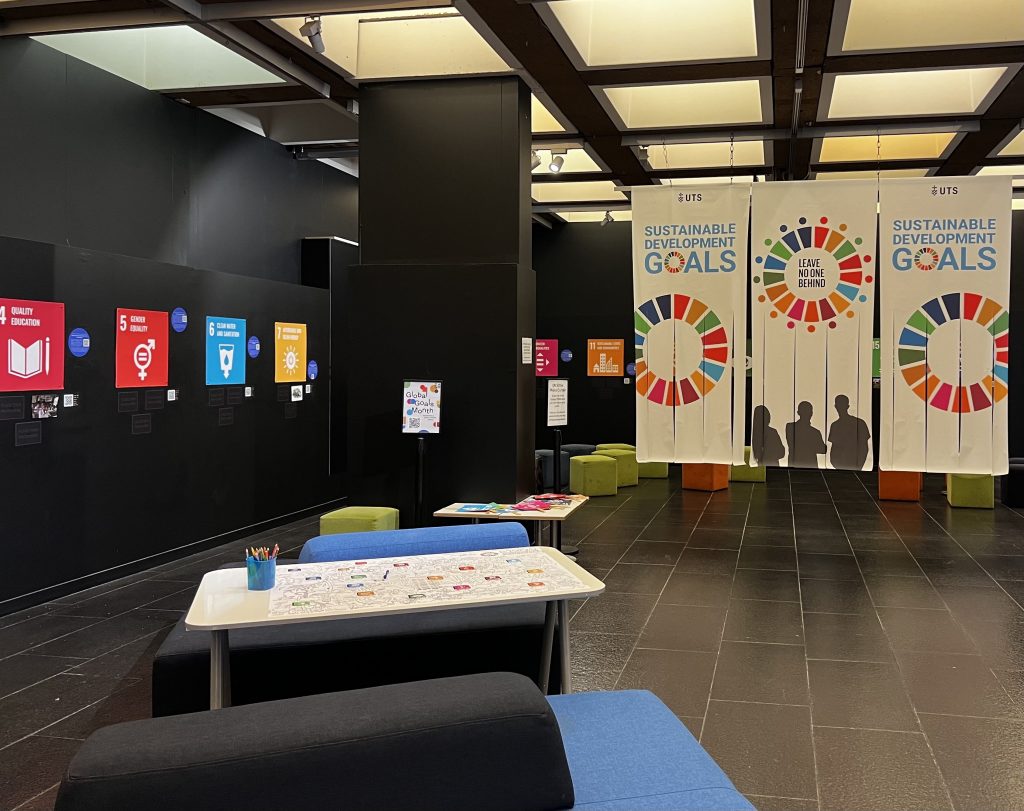The UN’s Sustainable Development Goals (SDGs) are about creating a future where people and the planet are thriving. Agreed in September 2015, the SDGs set targets to achieve by 2030 across a range of areas, including poverty, gender equality, climate change, economic growth and justice.
We’re now at the halfway mark in the SDG timeline and unfortunately, we’re not doing so great. Progress on more than 50% of targets is weak. On 30%, it’s non-existent or actually getting worse. As a couple of examples:
- Almost 1/3 of the world’s population is moderately or severely food insecure
- 2.2 billion people don’t have access to safe drinking water, and we’ll need to increase our rate of progress 6 times over to meet the 2030 goal
- At our current rate of progress, it’s going to take us 286 years to close gender gaps in legal protections
And that’s just the tip of the (melting) iceberg.
With Global Goals Month at UTS comes an opportunity to explore the many ways education can support global sustainability challenges. These are problems that need expert knowledge, the ability to think holistically across systems, and transformative innovation to address. That’s where research students come to our rescue. By tackling complex challenges without easy answers, UTS research students are working to create a future we can survive. And not just survive, but flourish.
Read on for a quick overview of a couple of SDGs and the ways our researchers are taking on these challenges.
1. Providing safe drinking water (SDG 6.1)
When it comes to supporting communities to access safe drinking water, there’s a double challenge: how can we deliver the water in the first place, and how can we ensure that the solution lasts?
Sam Adeoti’s research is ensuring that the next generation of water projects are sustainable. To date, almost half of water projects in Africa have failed, many within three years. Too many NGOs don’t include maintenance in their forward planning, or maintenance costs consume so much of their funding that they aren’t able to commit to new projects.
As CEO of Fairaction International, Sam is bringing research and action together to solve this problem. Fairaction’s Smart Water Kiosk uses IoT technology to scan for impending breakdowns in real time. By charging an affordable fee for water, the kiosks become financially self-sustaining.

2. Preventing maternal and childhood mortality (SDGs 3.1 and 3.2)
Effective health care has to take into account not just medicine but culture. People’s bodies, minds and well-being exist in the complex interconnected real world, not the lab.
By increasing recognition, understanding and respect for the cultural practices and knowledge embedded in cultural safety during the antenatal and perinatal period, Kim Beadman is improving the quality of health service delivery to Aboriginal women and their babies.

What problem would you tackle?
Fundamentally, research is about solving a problem. It’s about creating an answer or a solution that didn’t exist before. Research students at UTS are doing pathbreaking work that’s leading to real-world change — and in fact, UTS is the top university in Australia when it comes to research that has a high impact on our environment, economy and society.
What problem would you tackle?

On campus? Visit this ‘living’ exhibition near the main entrance of the UTS Tower (Building 1, level 4) to explore the ways UTS is addressing SDGs.
